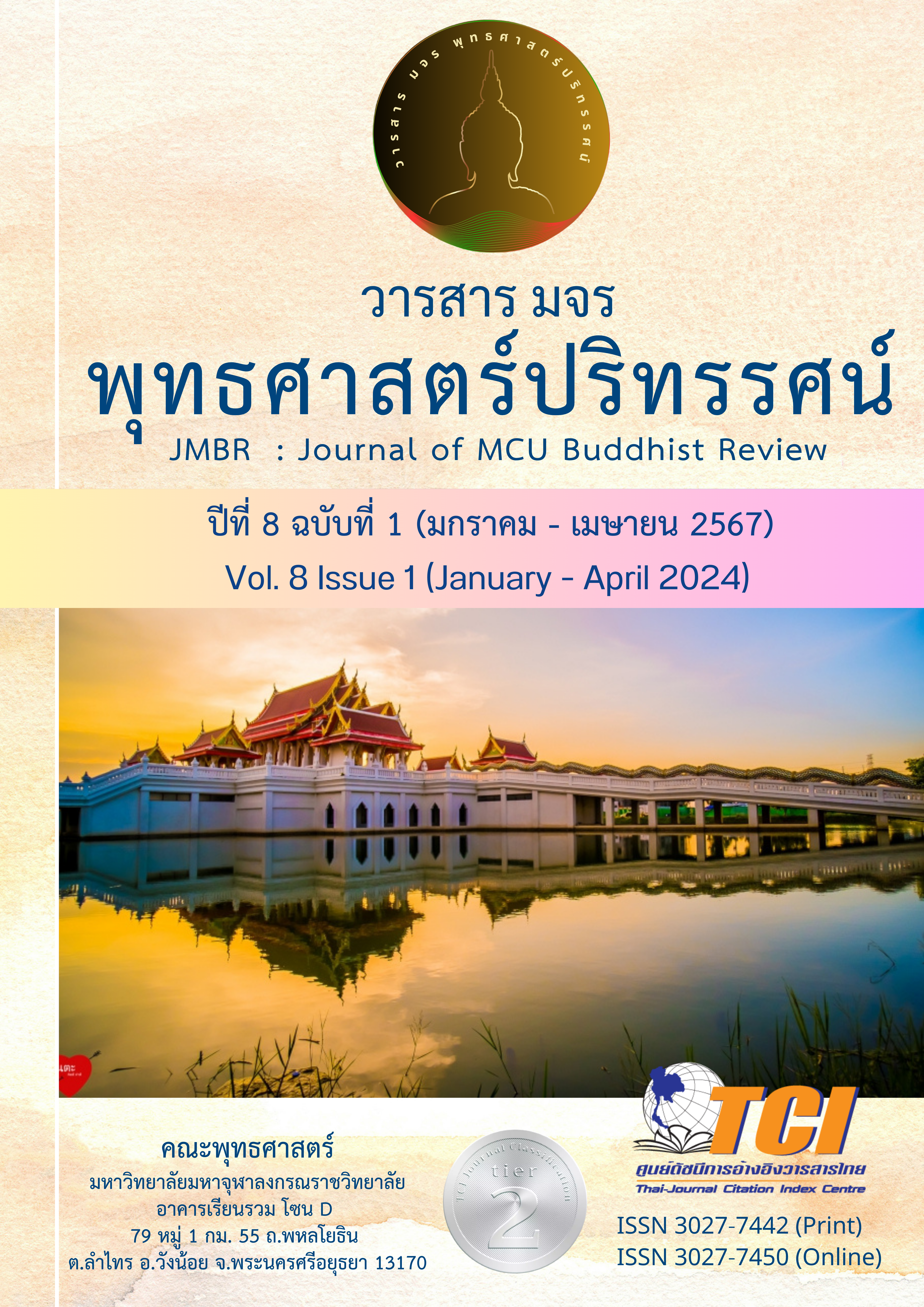พหุวัฒนธรรมทางความเชื่อในอุทยานประวัติศาสตร์ศรีเทพ
Main Article Content
บทคัดย่อ
บทความวิชาการนี้มุ่งศึกษาพหุวัฒนธรรมทางความเชื่อในอุทยานประวัติศาสตร์ศรีเทพ ซึ่งเป็นเมืองโบราณที่มีความสำคัญมาตั้งแต่ยุคก่อนประวัติศาสตร์ เป็นยุคของการติดต่อกับชุมชนภายนอกและในยุคที่เมืองศรีเทพเจริญรุ่งเรือง ทั้งสมัยทวารวดีและสมัยที่เขมรเข้ามาปกครอง ศรีเทพเป็นเมืองที่มีความสัมพันธ์ระหว่างวัฒนธรรมทวารวดีกับวัฒนธรรมเขมรโบราณ ปัจจุบันเมืองแห่งนี้เป็นอุทยานประวัติศาสตร์ศรีเทพ ซึ่งมีโบราณสถานสำคัญที่จำแนกเป็น 2 กลุ่ม คือ โบราณสถานในเมืองและเมืองนอก โบราณสถานในเมืองมี 3 แห่ง คือ โบราณสถานเขาคลังใน โบราณสถานปรางค์ศรีเทพ และโบราณสถานปรางค์สองพี่น้อง ส่วนโบราณสถานที่นอกเมืองมี 3 แห่ง คือ โบราณสถานเขาคลังนอก โบราณสถานปรางค์ฤาษีและโบราณสถานเขาถมอรัตน์ โบราณสถานเหล่านี้เป็นแหล่งรวมวัฒนธรรมความเชื่อ ทั้งจากพุทธศาสนาแบบเถรวาทและมหายาน และศาสนาพราหมณ์-ฮินดูนิกายไศวะ ความหลากหลายทางความเชื่อนี้ก่อให้เกิดความงามที่เป็นอัตลักษณ์ของเมืองศรีเทพที่ควรแก่การอนุรักษ์และศึกษาอย่างยิ่ง องค์ความรู้ที่ได้จากการศึกษาครั้งนี้ คือ 1) การได้แนวคิดด้านความเชื่อทางศาสนาที่เป็นวัฒนธรรมประเภทคติธรรม ซึ่งจำแนกเป็นลักษณะย่อยตามหลักพุทธศาสนาและศาสนาพราหมณ์-ฮินดู 2) การได้แนวคิดด้านโบราณสถานที่เป็นวัฒนธรรมประเภทวัตถุธรรม ซึ่งจำแนกเป็นลักษณะย่อยตามภูมิศาสตร์ที่เป็นพื้นที่ในเมืองและนอกเมืองที่มีความเชื่อมโยงกับความเชื่อทั้งในพุทธศาสนาและศาสนาพราหมณ์-ฮินดู
Article Details

อนุญาตภายใต้เงื่อนไข Creative Commons Attribution-NonCommercial-NoDerivatives 4.0 International License.
- บทความที่ได้รับการตีพิมพ์เป็นลิขสิทธิ์ของวารสาร มจร พุทธศาสตร์ปริทรรศน์
- ข้อความใดๆ ที่ปรากฎในบทความที่ได้รับการตีพิมพ์ในวารสาร ถือเป็นความรับผิดชอบของผู้เขียนบทความ และข้อคิดเห็นนั้นไม่ถือว่าเป็นทัศนะและความรับผิดชอบของกองบรรณาธิการวารสาร มจร พุทธศาสตร์ปริทรรศน์
เอกสารอ้างอิง
กระทรวงการต่างประเทศ. (19 กันยายน 2566). เมืองโบราณศรีเทพได้รับการขึ้นทะเบียนเป็นมรดกโลกแห่งที่ 7 ของประเทศไทย. สืบค้น 27 มกราคม 2567 จาก https://www.mfa.go.th/th/content/si-thep
ธาดา สังข์ทอง. (2544). นำชมอุทยานประวัติศาสตร์ศรีเทพ. กรุงเทพฯ: สำนักโบราณคดีและพิพิธภัณฑสถานแห่งชาติ.
ประกาศกรมศิลปากรเรื่อง กำหนดจำนวนโบราณสถานสำหรับชาติ. (8 มีนาคม 2478). ราชกิจจานุเบกษา เล่ม 52. หน้า 3679-3717.
พระเจ้าบรมวงศ์เธอ กรมดำรงราชานุภาพ. (2469). เรื่องเที่ยวที่ต่าง ๆ ภาคที่ 3: เล่าเรื่องเที่ยวมณฑลเพชรบูรณ์. พิมพ์ในงานปลงศพหม่อมราชวงศ์หญิงปลื้ม อสุนี ณ อยุธยา. พระนคร: โสภณพิพรรฒ- ธนากร.
ศรัณย์ มะกรูดอินทร์. (2566). เล่าขานเมืองโบราณศรีเทพ. เอกสารประกอบการบรรยายในโครงการสุวรรณภูมิศึกษา กิจกรรมทัศนศึกษา “ตามรอยอารยธรรมสุวรรณภูมิ” และสัมมนาในหัวข้อ “สืบสาน ส่องธรรม ณ เมืองโบราณศรีเทพ”. 1-2 พฤศจิกายน 2566. ณ อุทยานประวัติศาสตร์ศรีเทพ อำเภอศรีเทพ จังหวัดเพชรบูรณ์. ม.ป.ท.: ม.ป.พ.
สถาพร เที่ยงธรรม และคณะ (2550). อุทยานประวัติศาสตร์ศรีเทพ. เพชรบูรณ์: อุทยานประวัติศาสตร์ศรีเทพ กรมศิลปากร.
สถาพร เที่ยงธรรม. (2554). ศรีเทพ: เมืองศูนย์กลางความเจริญแห่งลุ่มน้ำป่าสัก. เพชรบูรณ์: อุทยานประวัติศาสตร์ศรีเทพ กรมศิลปากร.
สุรชัย พุดชู. (2566). เก็บข้อมูลภาคสนาม. 1-2 พฤศจิกายน.


